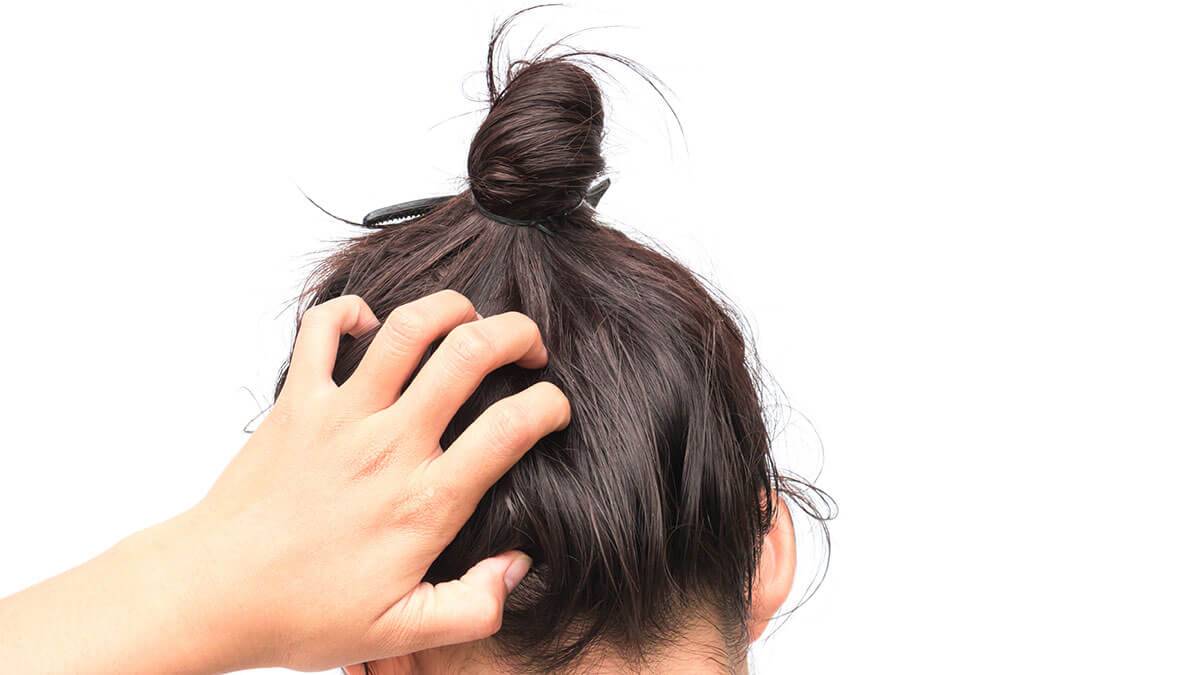
Itchy scalp is an unpleasant phenomenon that can occur in any person, regardless of age or gender. Although itching is usually a temporary and non-serious symptom, it can indicate various problems, both with the scalp and with internal organs, writes IZ. In this article, we will look at the main causes of itchy scalp and ways to deal with it.
Content
- Seborrheic dermatitis
- Scalp psoriasis
- Allergy to cosmetics
- Fungal infections
- Nervous tension and stress
- Poor quality food and dietary disorders
- Mechanical damage to the scalp
- How to relieve itchy scalp?
Seborrheic dermatitis
One of the most common causes of an itchy scalp is seborrheic dermatitis. This is a chronic inflammatory skin condition that causes red, scaly patches, often accompanied by intense itching. They can appear not only on the scalp, but also on other parts of the body where there are oil glands.
The causes of seborrheic dermatitis are associated with a malfunction of the sebaceous glands, in particular with excessive production of sebum, which contributes to the development of a fungal infection. Treatment of this disease involves the use of special shampoos, ointments, and in some cases, medication.
Scalp psoriasis
Psoriasis is another cause of itching, especially if it appears as large, red, scaly patches on the scalp. It is a chronic condition that occurs when the immune system malfunctions. This process causes skin cells to turn over rapidly, causing them to build up on the surface and form scales.
Various medications are used to treat scalp psoriasis, including corticosteroid ointments, as well as phototherapy.
Allergy to cosmetics
Many people suffer from allergies to cosmetics, including shampoos, conditioners, and hair masks. If you notice that your scalp itches after using a certain product, you are likely allergic to the ingredients in that product. This can range from mild itching to more serious allergic reactions with red spots, swelling, or even blisters.
To avoid such problems, you need to choose hair cosmetics without aggressive chemical components or with special softening additives. It is also important to conduct a sensitivity test before using a new product.
Fungal infections
Fungal infections on the scalp can also cause itching. Infections can occur due to insufficient washing of the hair, using someone else's combs or wearing someone else's hats. Microscopic fungi can enter the scalp, causing inflammation and itching. Fungal infections can be accompanied by flaking, rashes or even hair loss.
Treatment of fungal infections includes the use of antifungal shampoos and ointments, and in severe cases, taking internal antifungal medications.
Nervous tension and stress
An important factor that can cause an itchy scalp is stress. It is known that nervous stress negatively affects the skin, provoking itching, and sometimes the occurrence of various dermatological problems. Stress can cause increased sweating, which also contributes to itching.
To reduce itching due to stress, it is important to pay attention to mental health, engage in relaxation, meditation, or exercise.
Poor quality food and dietary disorders
Poor nutrition can also affect scalp health. For example, excessive consumption of sweet, fatty, and fried foods can lead to imbalances in the body, which are reflected in the skin. Digestive disorders or vitamin deficiencies can also contribute to an itchy scalp.
To improve the condition of your scalp, it is important to follow a healthy diet, including eating foods rich in vitamins and minerals that promote skin health.
Mechanical damage to the scalp
The simplest cause of an itchy scalp is mechanical damage to the skin. This can be the result of improper or excessive hair brushing, wearing too tight hats, or using combs incorrectly. In such cases, it is enough to simply eliminate the cause and give the scalp a rest.
How to relieve itchy scalp?
Depending on the cause of the itching, there are several ways to relieve the symptoms:
1. Use shampoos for problem skin.
2. Clean your scalp regularly, but without aggressive products.
3. Avoid stressful situations and relax.
4. Choose cosmetics without harmful chemical components.
5. Eat a balanced diet rich in vitamins and minerals.
As a reminder, we previously wrote about the top 8 sprouted grains and seeds for improving health.

